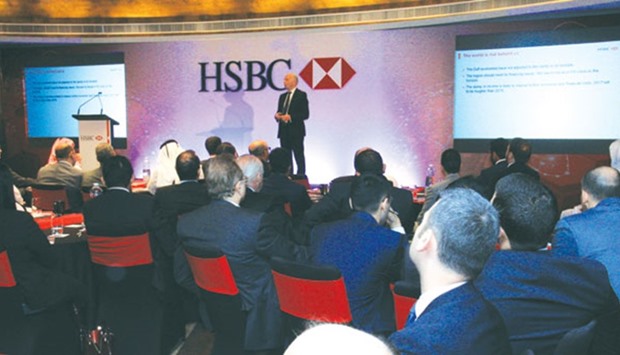The Gulf Cooperation Council (GCC) economies, which have spent two generations depending on its petrodollars, have to necessarily look at speeding up their structural reforms, unless there is a fresh pick-up in oil prices, according to HSBC.
HSBC economists made this observation in the backdrop of the Organisation of Petroleum Exporting Countries (Opec) meeting later this month to fine-tune its production cut proposal made at Algiers recently and in the backdrop of the US president-elect Donald Trump’s outlook towards the oil exploration in the US.
“Without a fresh pick-up in oil prices, only structural reform can turn the story around – a tough ask for a region that has spent two generations depending on its oil receipts,” HSBC chief economist (Central Eastern Europe Middle East and Africa) Simon Williams told a roundtable here.
Opec had in September disclosed the proposal on production cuts, first in eight years, by 700,000 barrels per day, which also led global crude prices to rebound then. The November meeting is expected to chalk out a clear strategy on how each of the Opec constituents would go about it, even though differences have surfaced within.
However, Trump had favoured higher oil exploration during his campaign, which market experts believe that it may fuel additional consignments to an already over supplied market, which would keep the prices down in the short to medium term.
Williams said two years after oil prices started to fall, the slump in energy earnings still dominates the (GCC) regional outlook.
“The Gulf is wealthy enough to weather the downturn, but the price will be high – falling reserves, rising debt, and slowing growth against a backdrop of spending cuts that still have years to run,” he cautioned.
An Indosuez Wealth Management report early this year said the GCC could potentially carve out a competitive advantage by pursuing structural reforms to improve the fiscal and economic landscape in the region; while Institute of Chartered Accountants in England and Wales suggested more fiscal reform measures as enhanced foreign ownership, investment frameworks, public private partnerships frameworks and improved transparency and corporate governance.
David Bloom, Global Head of Foreign Exchange Strategy at HSBC said currencies seem to be broken up into three distinct drivers: cyclical, structural, and political.
“However, as far as the big trended moves in foreign exchange are concerned, politics has been the main driver,” he said, highlighting Abe in Japan, (Narendra) Modi in India, Rousseff in Brazil and of course in the UK with Brexit.

The HSBC economists roadshow in Qatar.

